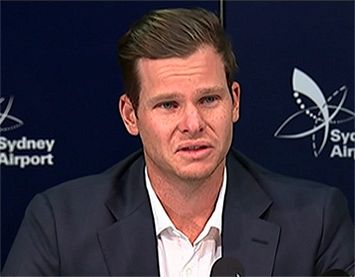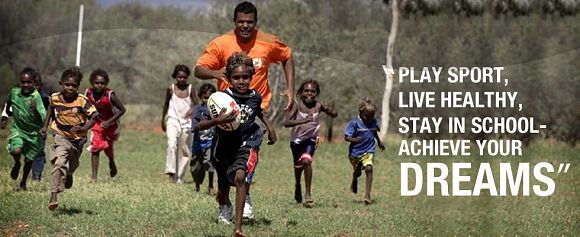Table tennis is one of the world's most popular sports and has many little-known health benefits that can assist longevity in the body and mind, writes Dean Frenkel.
WHAT SPORT would you recommend your child play?
If it’s football, most footballers have to retire by age 30, some having acquired injuries for life. If it’s competitive tennis, most players overdevelop one side of their bodies and suffer shoulder, knee, ankle, wrist and, of course, tennis elbow injuries.
If you like soccer, regularly heading soccer balls for decades can leave you with chronic traumatic encephalopathy (CTE) and let’s not talk netball and knees and ankles, or rugby which is associated with John Hopoate and neck braces. If you love cricket, few cricketers have bodies that allow them to play beyond the age of 38.
In short, table tennis (TT) should top the list of recommended sports for anyone from age four to beyond 90. It can even be medicinal.
Competitive table tennis is a low-injury, intensive fitness workout and a highly intelligent game. Physician and brain imaging expert Dr Daniel Amen calls it ‘the best brain sport’. It is even gender-irrelevant — one of those rare sports where women and men compete against each other on an even keel.
I never beat 83-year-old George Chen in seven years of TT competition but playing him was like playing against kung fu itself. His charisma and skill literally made his opponents’ games fall apart. There are other George Chens who take more than 70 years of experience into their matches, and more often than not they beat other more skilled and agile opponents.
Table tennis is among the top ten most-played sports on Earth with an estimated 875 million players. In China, there are an incredible 85 million regulars yet despite what you’d think, the game does not originate from there. It was invented by David Foster in England in 1890.
Until recently, TT was our national family sport and a brilliant way to socialise with family and friends and unlike other sports, all genders and cultures would mix and have fun together. Authentic Australia had a TT table in the garage and a Hills Hoist in the backyard.
In 1970, when there was no compulsion to wear seat belts and drunk driving was the norm, 1,061 people died on Victorian roads compared with 1,123 in 2021. It turns out many of the same skills that develop for table tennis also work for driving a motor vehicle. These include developing complex focus, acute awareness framing, cognitive peripheral vision and learning to read trajectory.
I would suggest that these skills need to be exercised fairly regularly. Such progressive thinking was on legendary footy coach Ron Barassi’s mind when he masterminded his Carlton team with TT skills to the premiership as relayed by (in my opinion) the greatest ever footballer, Alex Jesaulenko, when we played TT once.
Indeed, TT medicine is gaining acknowledgement. It quickens reflexes, develops and sharpens optical focus, emboldens a collection of neuromuscular circuits and has numerous physical and mental health benefits. There is good evidence TT assists sufferers of Parkinson’s Disease according to a study done by Ken-ichi Inoue, MD, of Fukuoka University, Japan.
It has also been found to work against dementia and help people with ADHD. Science is starting to tell us that the game is much healthier than we realised but we need more studies and much more funding.
Table tennis is a brain and body sport but beyond the dance, strategies and physical chess games, it is brilliant a neurological exercise, requiring the eyes to strongly focus on the trajectory of a little ball and somehow within the spatial framing, hit it over the net with surgically accurate placement within the confines of the table. Experienced players can also read the spin and correctly anticipate it.
Complex judgment is required for every shot. The brain can also apply the skill of subtly adjusting the intensity of grip and precise angle of the bat; much of this is instinctive or subconscious, all accomplished within a fraction of a second. The quickness really is extraordinary. Another part of the brain enforces self-control, something that frequently challenges even the most talented players. There are so many neurological circuits at play even before the body is mentioned.
But table tennis is in trouble in Australia at present. Table Tennis Victoria (TTV) has only two employees; NSW has none — only volunteers. Melbourne doesn't even have a designated TT centre. TT centres in regional and outer suburbs have better facilities than inner Melbourne.
In 1997, the Albert Park Table Tennis Centre, a dedicated venue for six decades, was demolished to make way for the Melbourne Grand Prix. But rather than ensuring the construction of another table tennis centre, TTV took the fool’s carrot and moved to Melbourne Sports and Aquatic Centre (MSAC); the entire table tennis community is still paying for this idiocy.
In effect, MSAC treats table tennis as a second-rate resident. Basketball and volleyball are better money-spinners and the state TT competition is drowned out by loud screaming basketball and volleyball crowds from the adjoining court who share the stadium. The facilities are not purpose-built — the lighting and floors are well below standard.
Yet TTV is now back in the black after a large debt scare and CEO Gen Dohrmann is doing her best to promote the game to more people and bring them out of their garages.
Melbourne still needs a dedicated table tennis centre and table tennis requires substantial funding, world-class facilities and research to do justice to one of the most popular sports in the world. No other sport would benefit society as TT does.
Dean Frenkel is a writer and communications consultant, lectured in Public Speaking and Communications at Victoria University, worked with politicians and written extensively for newspapers.
 This work is licensed under a Creative Commons Attribution-NonCommercial-NoDerivs 3.0 Australia License
This work is licensed under a Creative Commons Attribution-NonCommercial-NoDerivs 3.0 Australia License
Support independent journalism Subscribe to IA.














